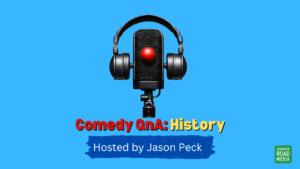How to Learn Your Speech
Following on from my last post about memory, I thought I’d share with you a technique I learned last year (2008) for memorising a speech in 24 hours!! If you’re one of my British readers you’re probably thinking “Boll*cks, that’s not possible”. Well, it is because I’ve done it. TWICE.
Doesn’t matter whether you’re creating a funny presentation or not. This technique simply works. If you’re wondering how to learn a speech, you’re about to discover an absolutely great technique.
Learning in the Alpha State
First of all, here’s a little scientific background on the brain’s different states.
During the times that we’re awake, like now, your brain is in what’s called the beta state. Brainwaves run at 13-25 cycles per second or hertz. When you’re asleep your brain moves into the delta state which is 1-4 hertz.
There are three other states such; Alpha; Theta and Gamma. However, for the purposes of our little experiment we’re only interested in the Alpha state. The alpha state is ideal for learning as the brain is relaxed, but focussed. It generally runs at 8-12 hertz.
There are a number of different ways in which you can enter the alpha state, but don’t worry there are no weird drugs or anything remotely dangerous. It’s just about understanding how your brain enters this state and then using deliberate techniques to hack into that state. This is one of the best ways to learn speeches.
One way to get into the alpha state, and improve learning, is through listening to Baroque or Mozart with rhythms of 60 beats per minute. Now, in terms of scientific proof of the learning benefits of alpha states, I’ve only been able to find evidence on websites which do not cite their research sources. That said according to the New Scientist this theory about Mozart music came from psychologist Frances Rauscher.
The fastest, simplest and most… naturalist way for your brain to enter into the alpha state, which I’ve discovered through research and practise, is when you’re just going off to sleep and again when you’re waking up. Are you with me so far?
Right, here’s the word on the street…
Let’s say, for example, that you decide that you want to memorise your speech, word-for-word. Here’s a simply 5-step process for you:
1) Get your speech written. There are plenty of bits of advice on this blog, and elsewhere, about doing that. I’ve mentioned a few times on this blog that you want to capture the way you speak. Not only will this help you connect to your audience, but it will also make the task of learning the speech even easier.
2) Record your speech. Get some sort of audio recording device, a Dictaphone for example, and record your speech onto it. Whatever you use it has to have a record and playback function as well as the ability to have earphones plugged in.
3) Relax. As you settle down to sleep, make sure you’re chilled out and fairly tired. Being wide awake and hyped up doesn’t work at the best of times. Ditch the caffeine and read a fiction book if it helps you.
4) Sleep… then learn. Put your earphones in and play back your speech. Then, er… you go to sleep.
Note: here’s my experience. I recorded the speech onto the Dictaphone twice. As you’re settling down to sleep, part of you is consciously listening to the speech and thinking how awful your voice sounds, which keeps you awake. But as you drift off to sleep, the second recording plays which you won’t hear. It doesn’t matter that you don’t consciously hear it. Your brain will.
5) Wake up… then learn. When you wake up the following morning, your brain is still partially in the alpha state. If an alarm clock wakes you up it could rapidly pull you through the delta state through alpha and into waking beta. But you’re probably still half asleep anyway. This is the best time to re-play the speech. Put your alarm on snooze, replay the speech and lay there for a few extra moments, listen to the speech and… snooze.
And that’s it. You wanted to know the best way to learn a speech, there it is. Of course, that’s not the only way. But it’s certainly one of the best I’ve come across.
Get up and get ready for the day in your usual way and you’ll find that your speech has gone in. Try not to freak out as it will feel as though you haven’t put any effort in and yet you can recall your speech almost perfectly.
It’s the quickest way to learn a speech that I’ve come across.
Case History
When I first did this it was for my speech which won me the International Speech contest at my club Grosvenor Square Speakers. I was frantically writing and re-writing the speech the weekend before I was due to give it.
Once I got it to a stage where I was happy with it, I followed the above steps and it got plugged straight into my subconscious. It was a very weird feeling.
You should still go over the speech a few times out loud to make sure your mouth knows what it’s doing as per my last post.
But that’s the process. It’s like you just open your head, shove your speech and – boom – it’s there! If you want to kn ow how to learn a speech, this is one of the best and easiest techniques.




5 comments
1 pings
Skip to comment form
Jason, re #5 in this super-practical post, a companion tip:
Before going to sleep, lull yourself into lucid dreaming so you can remove the restrictions of your ego & fears and see yourself practicing your speech.
Do this by clearing your mind after you are in bed, place yourself on the stage and see the details of the room, then drift off.
As Stanford’s Stephen Levine has researched, taught and wrote, this deeper sleep enables you to more completely picture your situation, access your thinking and feeling for fuller engagement in understanding what you want to accomplish and how to do it.
As a once phobically-shy student in his class who went on to be a journalist and public speaker, I found his approach life-changing (in making wiser choices) and career-boosting when polishing the meaning and delivery of my presentation.
I continue to be impressed with the high quality of these news-you-can-use posts.
Author
Hey Kare
Welcome back! You’re getting to be quite a regular in the prohumorist community,that’s great. Thank you very much.
I generally find this whole notion about memory and how the brain works fascinating.
This Lucid dreaming idea of Stephen Levine’s sounds intriguing. It’s great that it has worked so well for you. I might experiment with it myself.
Cool little companion tip. Thanks again.
I had a mixed reaction to this blog. The technique is sound, and in fact you can rid yourself of public speaking fears if you’re willing to do the work in this waking-sleeping state of mind. Just repeat to yourself the positive version of your fear, something like “I enjoy speaking to large groups of people,” over and over again as you fall asleep. If you do this for 3 weeks or so, you will lose the fear.
On the other hand, precise memorization of speeches is usually not a good idea, for most people, because it leads to a dead, sing-song, recitation quality to the speaking. Better to know the speech well through rehearsal, and understand its main points thoroughly. Then, don’t try to say it the same way every time, but rather make it a conversational exercise. You’ll come across as more authentic and interesting.
The ancient Greeks had a handy method for this kind of memorization. They would ‘put’ the major sections of the speech in rooms of a house that they knew very well — mentally of course — and then, when ready to give the speech, mentally walk through the rooms of the house. No less an orator than Cicero found this method quite acceptable.
Author
Hi Nick,
Thanks for dropping by. I know what you mean about precise memorisation of speeches. I spoke about that very subject on my previous post: http://prohumorist.com/?p=234
Sometimes, I think, that’s useful know precisely what you’re going to say because of a specific way of wording something that you’ve made. In the speech creation process you create a certain turn of phrase that gets across an idea of a part of your message in the best way.
Therefore, it could be useful to memorise it precisely. I think it comes down to practise that stops any sing-song quality to a delivery. Actors have to deal with that all the time.
Cheers,
Nick,
“precise memorization” – if it means you have fully absorbed it it means you can embody it when you speak.
I know that, first hand.
It becomes, not simply what you are saying but who you are so you can be more fully present when speaking and feel your energy go out and envelop the audience so the experience moves from being a “me speaking at you all” to a “me speaking with you”, pulling you in so that it is natural for those in the audience to spontaneously respond to my questions of them or suggestions that they pick a partner to try something I just said.
As someone diagnosed as “phobically shy” by a grade school psychologist yet who was just highly curious as an observer rather than a talker when young I completely identify with Jason’s wholistic approach.
It helps us speakers bring an audience closer as they enjoy hearing and practicing ideas together – and feel heard when the speaker asks them questions.
Here’s to more Me2We ideas in an increasingly time-starved, transient and information-glutted world.
[…] Peck outlines his memory method for learning a speech in 24 […]